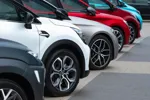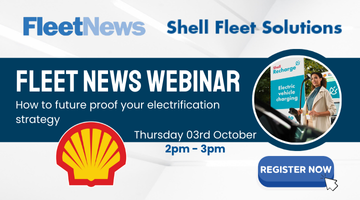The first Focus Flexi-Fuel Vehicles (FFV) are due to arrive here early next year as part of a scheme called the Somerset Biofuel Project. The project has already achieved massive success in Sweden, where 80% of Focus models sold are FFV versions, although mainly thanks to hefty Government financial support. Modified to run on bio-ethanol fuel – made from waste products such as straw, wood and household rubbish – the 40 Focus FFVs will be used by Somerset County Council, Wessex Water, Avon and Somerset police and Wessex Grain.
All the organisations are partners in the project, which has been set up to produce bio-ethanol and make it available at five refuelling stations across Somerset.
Andy Taylor, Ford’s corporate citizenship director, said: ‘We have moved fast to launch a bio-ethanol version of the new Focus. All this would be for nothing without the simultaneous installation of a fuel supply infrastructure alongside the availability of the cars. The Somerset Biofuel Project is proving what can be accomplished when major players work towards a common goal.’
The bioethanol fuel will be produced by Wessex Grain, which is creating a new facility at its site in Henstridge with the capacity to convert 340,000 tonnes of wheat into 131 million litres of ethanol a year.
The Focus FFV cars are powered by a 1.8-litre engine which has been modified to run a mixture of bio-ethanol and regular unleaded petrol. The benefit is that these cars offer a 70% reduction in CO2 over petrol-only models thanks to the CO2 absorbed by the crops before they are harvested for bio-ethanol production.
Somerset County Council’s sustainable development officer, Ian Bright, said: ‘In addition to reducing greenhouse gases, this project presents significant opportunities for the county’s rural economy.’
The Focus FFVs are available to order and although Ford has not set prices, it says the cars will command a premium of a couple of hundred pounds over the petrol models. The cars are mainly aimed at fleet customers, as they need the refuelling infrastructure to run them.

















Login to comment
Comments
No comments have been made yet.